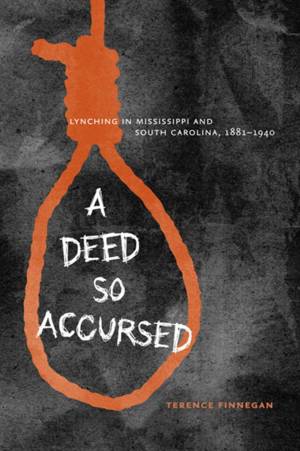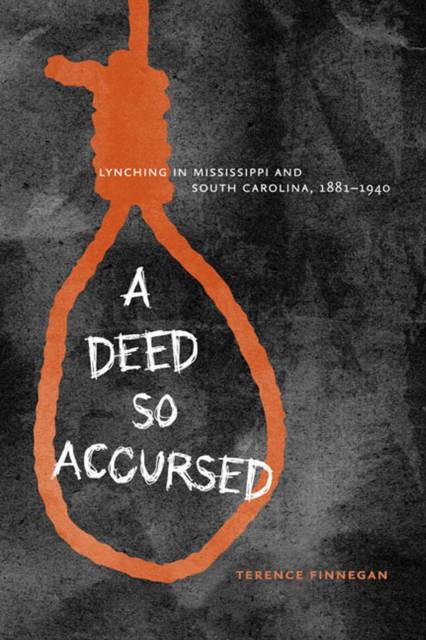
- Retrait gratuit dans votre magasin Club
- 7.000.000 titres dans notre catalogue
- Payer en toute sécurité
- Toujours un magasin près de chez vous
- Retrait gratuit dans votre magasin Club
- 7.000.0000 titres dans notre catalogue
- Payer en toute sécurité
- Toujours un magasin près de chez vous
Description
From the end of Reconstruction to the onset of the civil rights era, lynching was prevalent in developing and frontier regions that had a dynamic and fluid African American population. Focusing on Mississippi and South Carolina because of the high proportion of African Americans in each state during "the age of lynching," Terence Finnegan explains lynching as a consequence of the revolution in social relations--assertiveness, competition, and tension--that resulted from emancipation. A comprehensive study of lynching in Mississippi and South Carolina, A Deed So Accursed reveals the economic and social circumstances that spawned lynching and explores the interplay between extralegal violence and political and civil rights.
Finnegan's research shows that lynching rates depended on factors other than caste conflict and the interaction of race and southern notions of honor. Although lynching supported the ends of white supremacy, many mobs lynched more for private retaliation than for communal motives, which explains why mobs varied greatly in size, organization, behavior, and purpose.
The resistance of African Americans was vigorous and sustained and took on a variety of forms, but depending on the circumstances, black resistance could sometimes provoke rather than deter lynching. Ultimately, Finnegan shows how out of the tragedy of lynching came the triumph of the civil rights movement, which was built upon the organizational efforts of African American anti-lynching campaigns.
Spécifications
Parties prenantes
- Auteur(s) :
- Editeur:
Contenu
- Nombre de pages :
- 248
- Langue:
- Anglais
- Collection :
Caractéristiques
- EAN:
- 9780813933849
- Date de parution :
- 11-02-13
- Format:
- Livre relié
- Format numérique:
- Genaaid
- Dimensions :
- 161 mm x 234 mm
- Poids :
- 476 g

Les avis
Nous publions uniquement les avis qui respectent les conditions requises. Consultez nos conditions pour les avis.






